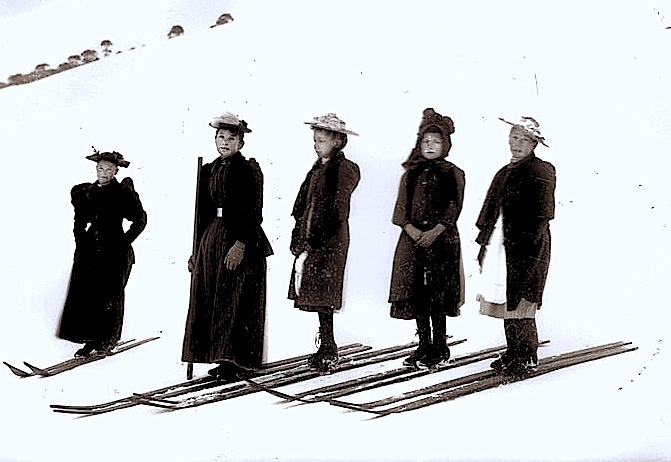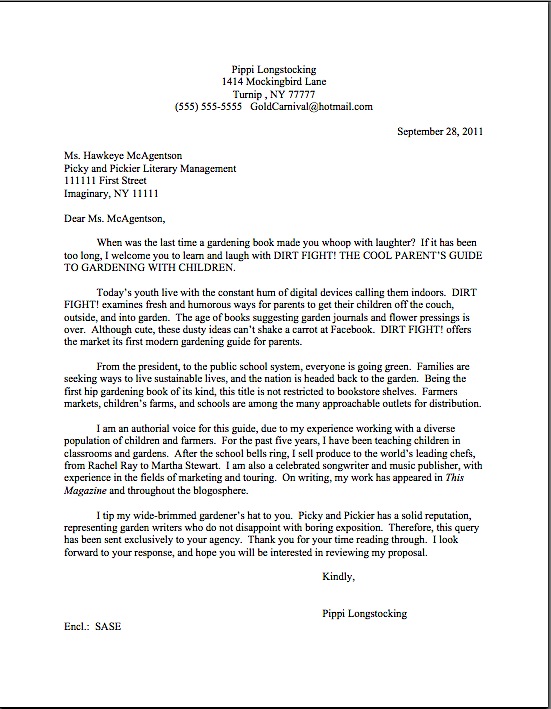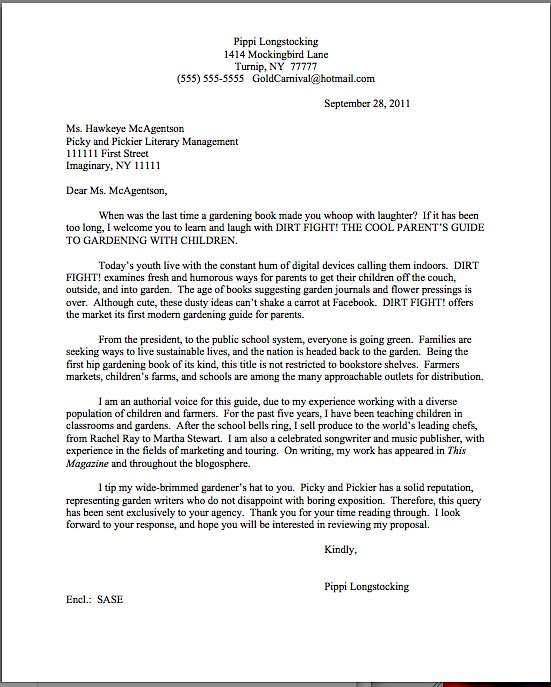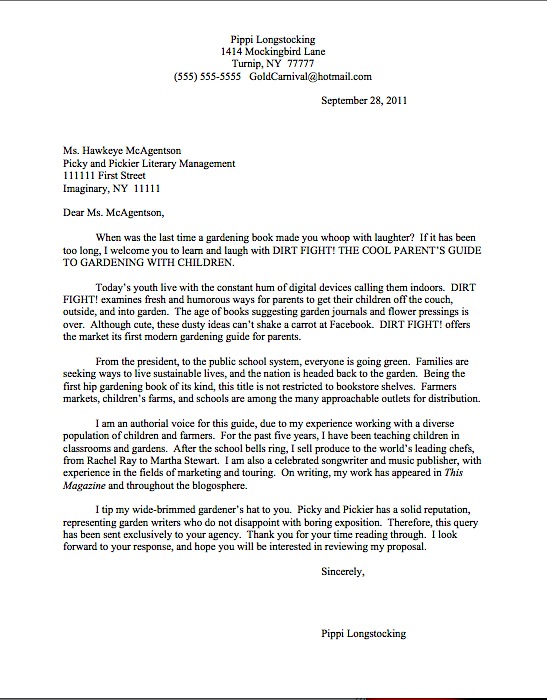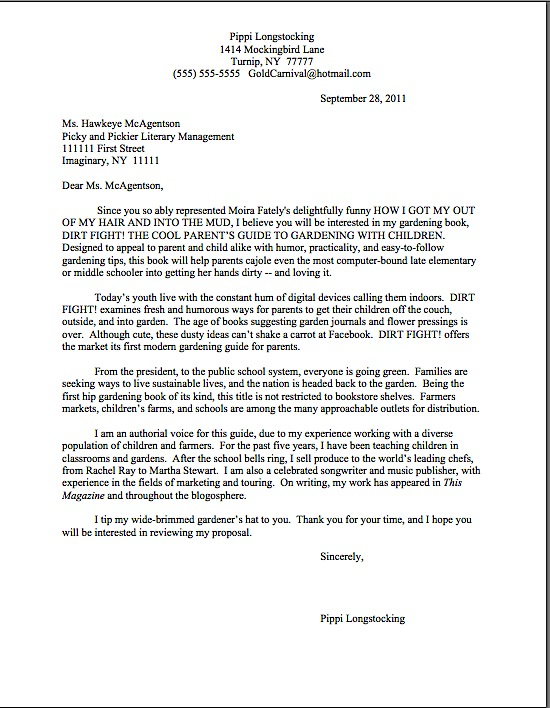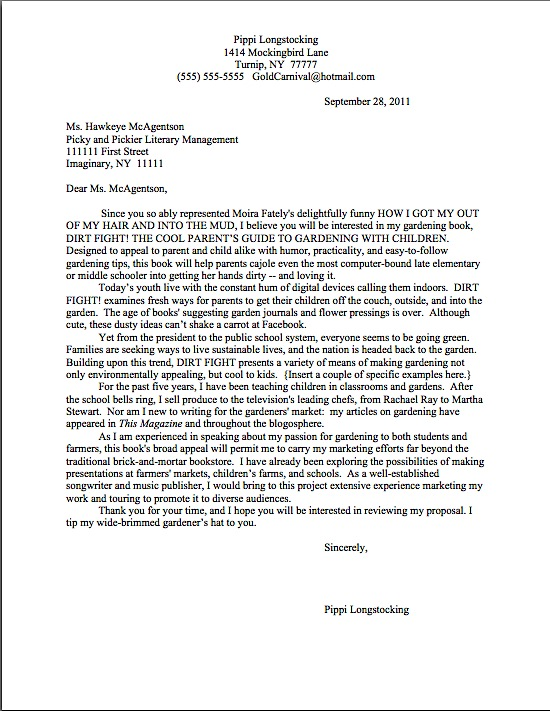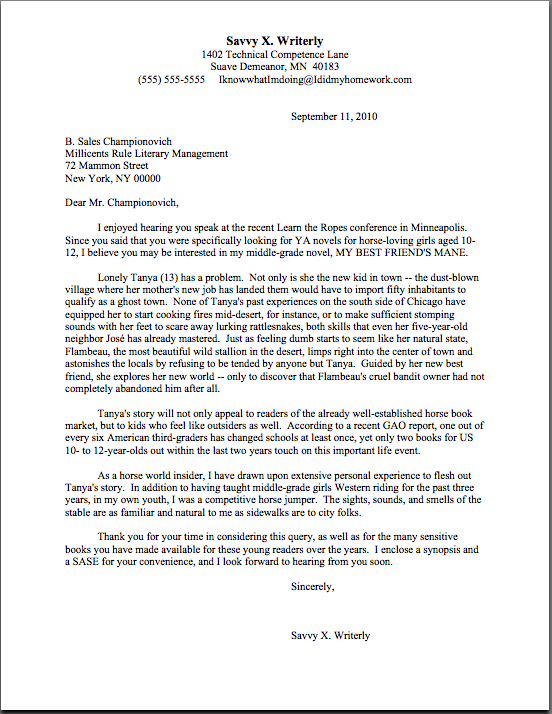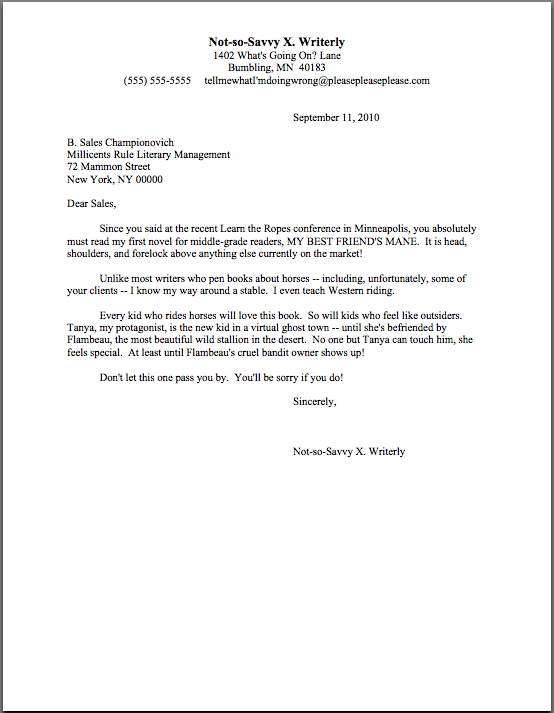The long-awaited day has come at last, : the mail carrier no longer staggers on his way into the agency; photocopying form-letter rejections has ceased being a full-time job; the last outgoing royalty statement has been finalized, and Millicent the agency screener can once again open her e-mail without having to suppress an impulse to switch lines of work into something more soothing, like becoming a tightrope walker or human fly. No more are aspiring writers across North America basing their respective self-worths upon sending out, willy-nilly, those queries and requested materials that seemed so imperative to pop into the mail immediately after that giant, gaudy ball dropped in Times Square.
January, and thus the Great New Year’s Resolution Avalanche of 2012, have finally passed into the annals of history. You may now, with my blessings, begin querying and submitting again. Millicent’s in a better mood now.
To celebrate this annual miracle — and your own good sense in not pursuing the agent of your dreams at exactly the same time everybody else was trying to beat down her agency’s doors — I’m going to try to wrap up Queryfest over the next few days. Some of you are going to be fielding requests for partials soon, and I’d like you to have freshly-minted advice in hand when they arrive. And after that, who’s up for some exhaustive discussion of craft? Or of a subject I’ve been longing to wrestle into submission (in both senses) in this fine forum, how to develop a story arc in a memoir?
I’m open to other suggestions, by the way. I’m here to answer writers’ questions, so please don’t tell me you haven’t any rattling around your creative brainpans.
In the meantime, to kick off our last little flurry of query examples penned by actual Author! Author! readers, here’s a delightful little missive (for what sounds like a genuinely fun book) from a brave reader calling herself, for the purposes of example only, Pippi Longstocking. (At least, I assume that’s not her given name.)
I’m immensely pleased that Pippi volunteered it, because it presents a perfect opportunity to apply the standards we discussed last time for evaluating a query. It also is marketing a nonfiction book that’s not a memoir, something of a rarity amongst the entrants for Queryfest’s limited personal-attention space. So let’s have at it — and, as always, if you’re having trouble viewing the individual words, try holding down the COMMAND key and pressing + repeatedly to enlarge the image. I’ll meet you on the other side to discuss what we learned.
Charming, is it not? Certainly, the voice here is engaging — and, better yet, in a manner that would make sense for a book like this. It’s clear what the book being presented is about (a less common attribute of nonfiction queries than Millicent might like), who needs it, who might buy it (not always a group that overlaps 100% with the needers), and why.
So far, so good. But I ask you: other than all that, is this a good query for a nonfiction book?
Hands just shot skyward all over the English-speaking world, didn’t they? “What do you mean, other than all that?” the Queryfest faithful cry out. “What else is there, for a nonfiction query? Agents are perpetually saying at conferences and even in their agency’s submission guidelines that platform is the most important matter, and Pippi seems to have a terrific platform for writing this particular book. Clearly, she has the requisite expertise, although it is phrased in a rather boasting manner, and that first sentence about being the authorial voice is phrased oddly. Also, that bit where she tells the agent what the reputation of the agency is strikes me as a little weird. As we have discussed earlier in this series, any of these might put off Millicent the agency screener in a fiction or memoir query, but everybody knows that writing style matters less than platform for nonfiction. So yes, I would say that this is quite a successful NF query. Are we done for the day?”
Whoa, there, campers — that’s a whole lot of assumptions, and not all of them are warranted. Yes, platform (the credentials, work or life experience, and/or celebrity status that might make a reader reach for this book on this NF subject, rather than another) is often vital to the success of a nonfiction query, but contrary to astonishingly pervasive rumor amongst aspiring writers, it’s not the only factor. Nor is the inherent interest of the subject matter, or even the size of the potential audience for the book.
So what else counts here, you ask? Well, a lot of small factors that, when combined, would make up what Millicent is trained to assess as professionalism.
And again, the forest of hands rises before me. “But Anne,” aspiring nonfiction writers everywhere cry, deflated, “Pippi has made the case — and quite well, too — that she has the relevant work experience to legitimize her claim to be an expert. She also apparently has published previously, although, again, the rather offbeat phrasing with which that information is presented would slightly undermine its value, were I Millicent at the end of a hard day of screening. But there’s no denying that by the end of the letter, no one would have any doubt of what her platform is. So how on earth could she come across as more professional?”
Quite easily — at least when you consider that from Millicent’s perspective, platform can be about recognition and prestige in another field, but professionalism is about how well-equipped and willing the writer is to conform to the standards of book publishing. Despite the common wisdom on the subject, it is not only possible but likely that an aspiring NF writer with an excellent platform whose query raises doubts about whether the writer possesses the skills and knowledge to interact professionally with a future agent or editor will get rejected.
Yes, really. Contrary to popular opinion, the perceived professionalism of the query is more important in a nonfiction query than for fiction, not less. For a very good reason, too: it’s not as though Millie’s boss is going to have a full manuscript of this book in hand before making a decision to represent it, as she would for a novel. The agency (and Millie as its first-line decider) usually must assess the writer’s ability to deliver on the promise of the book based upon a query and a book proposal alone. So must the acquiring editor.
That’s not a great deal of information, considering what’s at stake here. A nonfiction writer is, after all, applying to a publisher (via a book proposal conveyed by an agent) for the job of writing a particular book, right? Pulling that off will require not only having the knowledge to inform the book and the platform to promote it, but the writing skills and application to complete it. So you can hardly blame the agent helping the writer land that job for wanting to feel confident in telling an acquiring editor, “Oh, yes, this writer will be able to finish writing this book on time, adhering to your perhaps abstruse submission standards. And I’m quite certain that she’ll be able to make any changes you want to the text — or, indeed, add those chapters not mentioned in the book proposal but nevertheless part of what you expect to see in the finished book — quickly, well, and without much quibbling.”
I ask you: does Pippi’s query currently inspire as much confidence in her adaptability and professionalism as it does in her expertise in the book’s subject matter? Is it as likely to cause Millie to cry out, “Hey, I’d love to work with this fascinating person!” — as it should, since Pippi does legitimately seem to be a fascinating person with diverse achievements — as it is to make her shout, “At last, a writer on a garden-variety topic who already enjoys considerable name recognition across a wide array of potential readers!” with vim?
Yes, yes, I know: we would all like to think that only impersonal, writing-based criteria play into screeners’ decisions about which queries deserve a response and which don’t, but personal impressions honestly do matter. Agencies are staffed with human beings, after all, not marketing robots: Millicent and her boss, the agent of Pippi’s dreams, are very well aware of how much more time-consuming, and therefore how much more expensive, it can be to represent a writer who does not already know how to present his writing professionally.
So for the rest of today’s post, I want to talk about how tweaking some minuscule elements and modifying the tone can raise a query from eliciting a cry of, “Oh, this is an interesting idea for a book, and this is a plausible person to write it,” to something that will make Millicent exclaim, “Wow, this is a great idea for a book, and this seems like the best person in the known universe to write it. And heavens, how pleasurable it would be to work with this person!”
Before we can legitimately draw such grand, sweeping, and possibly unwarranted conclusions about a book proposal none of us have read — Millicent may not harbor qualms about that, but we should — let’s first double-check that this query meets all of the entry-level criteria for consideration, as it were. Because a paper query (i.e., one that sent via regular mail, rather than by e-mail, and thus is likely to receive longer scrutiny) will first strike a screener on a presentation level, let’s go through 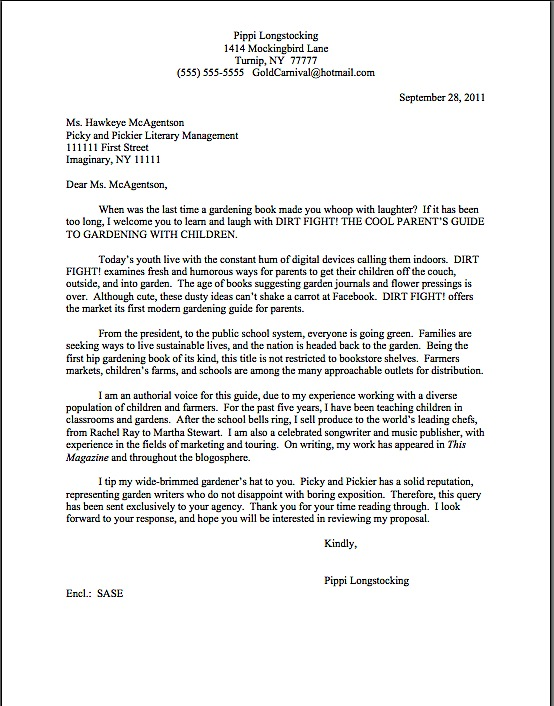
Looks quite different already, doesn’t it? That’s mostly due to the contact information’s having migrated to its proper location, but also the result of standardizing the spacing on that third line. Now, the extra space before the comma is gone, and there are the expected two spaces between the state abbreviation and the zip code.
Is that scuffling I hear the sound of those of you who are not especially detail-oriented scrambling to see what your last query might have looked like to Millicent? Excellent; you’re starting to gain a sense of how the little things can add up. Let’s keep moving through our query formatting checklist.
3. Everything in the letter should be in the same font and size: check.
4. The date of writing, tabbed to halfway or just over halfway across the first line of text: again, the proper information is here, but it’s in the wrong place.
In Word, the tab stop for the date should be either 3.5″ or 4″, lined up with the signature below; here, the date is placed at 5″. To a Millicent holding a paper copy, that’s a mysterious placement for it. Having the soft copy in front of me, though, I can tell what happened: instead of left-justifying this line, Pippi centered it, like the contact information, then hit the tab key twice. (Perhaps Pippi had heard that the date should be in the center of the page, and thought this would be the easiest way to achieve that placement?)
Regardless of how and why it got that way, the result is that Millicent is likely to conclude that Pippi doesn’t write very many letters. Again, probably untrue, but let’s go ahead and remove the temptation to draw this conclusion before proceeding down the list. Because the signature is at 4″ in the original, I’ll line the date up with that.
If this version does not strike you as inherently more professional-looking than the last, I invite you to compare it with the original version. See how different the two would appear to Millicent even from several paces away?
I hear some of you scoffing, but honestly, Millicent and her boss have to care about whether a prospective nonfiction client pays attention to what his words look like on the page. Book proposals are expected to adhere to a very specific format: would it really be to Pippi’s advantage for her future agent to submit her proposal to an editor if it did not look the way folks in the industry would expect a professional writer’s proposal to look?
5. The recipient’s full address: check. Here again, the zip code is closer to the city than typing teachers used to advise, but you don’t need to see a whole new version of the page just for that, do you? Especially when Pippi’s now on a formatting roll.
6. A salutation in the form of Dear Ms. Smith or Dear Mr. Jones, followed by either a colon or a comma: check.
7. In the body of the letter, all paragraphs should be indented: check.
8. In a query, titles of books may appear either in ALL CAPS or in italics : check.
9. A polite sign-off, tabbed to the same point on the page as the date. Well, now that’s true.
Although there is nothing technically wrong with signing off with Kindly, I have to say that I’m not crazy about using a non-standard sign-off in a query. “What does Pippi have against sincerely?” Millicent is left to wonder. “Is something in this letter insincere?”
While Kindest regards would be considered acceptable, if a trifle archaic, the use of Kindly all by itself doesn’t really make sense in this context. There’s nothing particularly kind about querying an agency; it’s a professional approach. The informal phrasing is also at odds the super-businesslike (and, in this context, unnecessary) Encl.: SASE , resulting in an overall confusing impression.
When in doubt, err on the side of formality. But there’s no need to use secretarial abbreviations from the 1960s, either.
10. Three or four skipped lines for the actual signature: actually, Pippi has skipped only two lines, something she’s unlikely to notice until she actually tries to sign the thing.
11. The writer’s name, printed, tabbed to the same point on the page as the sign-off: again, now correct.
12. A query should be printed in black ink on white paper: you’ll have to take my word for that one.
13. I mean it about the white paper: no exceptions: oh, you thought I was done nagging you?
14. A query should never exceed a single page. Again, no exceptions: again, check.
Let’s take a gander at what the result of all of these small changes would look like. While I’m at it, I’m going to add another line of space between the date and the recipient’s information, to spiff it up even more on the page.
Good-looking, isn’t it? It’s also significantly more like what Millicent expects a query to look like on the printed page, encouraging her to believe that this is a writer whose proposal and manuscript pages will be properly formatted as well. (See earlier comment about how leery any agent would be about taking on a client whose formatting would require double-checking before submission to a publisher.)
I sense some uncomfortable shifting in desk chairs out there. “But Anne,” those of you who kinda resent spending this much time of nit-picky formatting issues point out, “none of this has anything to do with the content of the letter. I get that Millicent might be subliminally affected by how a query looks on the page, but surely, she’s bright enough to be able to see past a flaw or two.”
Yes, of course she is, but my point here is that non-standard formatting is distracting. And a querier should care about that for precisely the reason you name: you want Millie to concentrate on the content of the letter.
As we can do, now that the query is properly presented. So dust off that list of what content needs to be in a query letter, and let’s see how Pippi’s missive measures up.
A query letter must contain:
1. The book’s title: check. As someone who reads quite a few titles in any given month, though, I found myself wondering if the use of the singular (A COOL PARENT’S GUIDE) meant that the book was aimed only at single parents. If it isn’t, THE COOL PARENTS’ GUIDE would be inclusive of everybody. Except the uncool, of course.
2. The book’s category, expressed in existing category terms: Millicent is left to guess this. Is this query for a gardening book? Or a parenting guide?
In other words, is the primary audience for this book gardeners with kids, or parents who would like to get their kids to garden? My guess is that it’s the former, given the explanation in the last paragraph. It’s not the query-reader’s job to guess, however, nor is it in the querier’s interest that she should: she might, after all, guess wrong. So it honestly is in Pippi’s best interest to commit.
Yes, yes, I know: this book might well be shelved in either the gardening or parenting sections of a well-stocked bookstore, but that’s not the point of including this information, preferably in the first paragraph; it’s to let Millicent know right away whether this is a kind of book her boss represents. If it appears not to be, the query will almost certainly be rejected.
It’s possible that Pippi is aiming at both audiences (and, with her expertise, perhaps she should), but from an agency perspective, that would be a sign of lack of writing experience. Why? Well, those two audiences would call for two rather different approaches. The first could assume that the reader already has some gardening expertise; the second wouldn’t. And since a book proposal has to contain a Competitive Market Analysis — a overview of similar books out within the last five years, along with explanations of how those books are similar or different to the one being proposed, to make a case that this book would appeal to the readers who bought the others — Millicent is well within her rights to expect Pippi to be familiar with her book category.
So while leaving the category ambiguous might seem to give Pippi more querying options, it actually makes her query look a bit less professional. Because this is such a common rejection reason and Millie reads so quickly, I would advise moving this information to the first paragraph, perhaps in place of the rather less evocative current opening, which reads like a children’s book — not the best strategy in a query aimed at an adult readership.
Oh, you were expecting me to cough up an example of that? If you can hold your horses until after we’ve discussed the other information usually included in a query’s opening paragraph, perhaps I shall. In this query, that part of the argument is relegated to the final paragraph.
3. A brief statement about why you are approaching this particular agent: I suspect that Pippi intends that rather odd bit of Hollywood narration in the final paragraph to serve this purpose. But place yourself in Millicent’s reading glasses and consider whether this really answers the relevant question:
I tip my wide-brimmed gardener’s hat to you. Picky and Pickier has a solid reputation, representing garden writers who do not disappoint with boring exposition. Therefore, this query has been sent exclusively to your agency. Thank you for your time reading through. I look forward to your response, and hope you will be interested in reviewing my proposal.
Admittedly, the opening sentence is kind of cute, but that misplaced comma is distracting: what Pippi presumably means is that Picky and Pickier has a solid reputation for representing garden writers who do not disappoint with boring exposition But what precisely is the point of telling Hawkeye something she must already know, that here agency has a solid reputation? Or the backhanded jab at the gardening book category, implying that most gardening books are boring?
Begging the obvious question (obvious to Millicent, anyway): why write in a book category one considers boring? Or is what this really intended to say that DIRT FIGHT! will be primarily a picture book, rather than one in which words bear the brunt of describing what the parents and kids are to do? If so, is Pippi planning on illustrating it herself, or will her publisher need to find an illustrator?
And what, while Millicent is wondering, is the significance of thanking her boss for reading through? Is that perhaps a tacit expression of the querier’s fear that a screener might not have still been reading by the time that sentence appeared on the page? Why the lack of confidence?
Aren’t you glad you were already aware our Millie might draw some mighty large conclusions from some mighty small clues?
As a veteran querying teacher, the conclusion I draw from this is substantially more charitable: I suspect that what’s happened here is that Pippi heard somewhere (earlier in Queryfest, perhaps?) that it was a good idea to give Hawkeye some indication why she had decided to query her, out of all the agents in North America. But all this paragraph really says is that Pippi is aware that the agency — not Hawkeye personally — occasionally represents gardening books of the non-boring variety, an avocation our writer evidently considers quite rare.
What makes me think that? Because Pippi actually says that she’s granting an exclusive on this query, even though virtually no agency in North America either expects or requests exclusive queries. Apparently, then, Pippi is willing to tie her hands and not query anybody else until she’s heard back from Hawkeye. That could take months — if Picky and Pickier gets back to queriers at all if the answer is no.
So what has Pippi gained from adding this statement? Nothing practical, certainly: agents are perfectly well aware that since turn-around times have ballooned, it could take years for a querier who approached agents one at a time to get a nibble. Nor will the spontaneous offer of an exclusive typically engender a faster response; Millicent will probably merely conclude that Pippi is working off a set of querying guidelines more than twenty years old. Which, again, does not really make the best case for the professionalism — or at least the current market-awareness — of this potential client.
Those of you working off antique guidelines just did a double-take, didn’t you? “But Anne,” golden-oldie lovers everywhere protest, “I heard once that agents get really mad if you query more than one at a time. I don’t want to offend anybody!”
While in days of yore — say, before the advent of the personal computer — there were a few agencies that harbored this extraordinary preference, those agencies have always been quite up front about it. Today, however, it’s become uncommon to require exclusive submissions, let alone queries; it places too much responsibility upon the agency.
So all offering an exclusive is likely to achieve is to make a query look old-fashioned at best to Millicent — and at worst, as though the writer really doesn’t care how long it takes to get her book published. Since NF agents tend to like to make a living off their clients’ book sales, that sense of leisureliness might well strike them as a rather expensive luxury.
So what would be a better strategy for Pippi to embrace? How about stating specifically why she chose to approach Hawkeye, rather than implying that any agent with a track record of representing non-boring gardening books would do? Heck, while we’re at it, why not go ahead and narrow the target audience down from all parents to a more realistic audience for a book?
Oh, you thought that there was a book out there that appealed to every parent? To Millicent’s eye, that’s one of those unsubstantiated claims that we discussed earlier.
But enough theory: let’s see this in practice. You may let those horses go, people. Here’s your example.
See how being specific about the category, why she’s approaching this agent, and to whom her book will appeal from the get-go makes Pippi look a heck of a lot more professional? Bringing in a title, rather than referring to gardening books in general, is better strategy here, too: now, rather than telling Hawkeye that her book is laugh-out-loud funny, she allows the agent to draw that conclusion for herself.
Much more elegant, as well as more convincing. And had you noticed that it provides a better set-up for the rather good argument that comes next?
Speaking of which…
4. A descriptive paragraph or two, giving a compelling foretaste of the premise, plot, and/or argument of the book, ideally in a voice similar to the narrative’s: Pippi does quite a good job of this conceptually — well done! — but this paragraph contains a couple of red flags. Did you spot them?
No? Millicent’s detail-oriented eye would. First, there is a missing word in that second sentence and an omitted apostrophe in the third — dead give-aways that the sender did not proofread this missive IN HARD COPY, IN ITS ENTIRETY, and OUT LOUD before popping it in the mail. Nor are those all of the typos here: the third paragraph contains an extra comma.
Why is that problematic? Do I need to repeat the argument about how clients whose submissions need to be double-checked are more time-consuming for Hawkeye to represent?
The typos are not the primary red flag here, however. It’s this sentence: DIRT FIGHT! offers the market its first modern gardening guide for parents. Even if everything else in the query were perfectly professional, this assertion alone would probably be sufficient to engender rejection. Any guesses why?
If you leapt to your feet, screaming, “I know! I know! It’s a sweeping claim that’s unlikely to be factually true!” award yourself a god star for the day. As we have discussed earlier in this series — and as practically every list of agents’ pet peeves floating around out there confirms — categorical statements about a book’s uniqueness tend to set Millicent’s teeth on edge. Basically, they challenge her to search the last five years’ worth of book sales, to see whether the generalization is true.
Yet as those of you who flung your hands into the air and cried, “But there are other books on the market that recognize the advent of the digital age, so Millicent will instantly conclude that this querier is not very familiar with the current book market!” were quite right to point out (the gold stars are in the cabinet across the room; help yourself), this particular sweeping statement is so unlikely to be true that she won’t even need to check. Video games have been around since I was a kid, for heaven’s sake, and television has been in most American homes since the 1950s. And no gardening book writers have noticed?
In Pippi’s defense, queriers make statements like this all the time, in the mistaken belief that their books will seem more important if they claim to be the first or only books of their kind. That can be a selling point — but only if it is unquestionably and demonstrably true. Otherwise, do yourself a favor: don’t go there.
All that being said, I have one question I could not answer without reading Pippi’s no doubt very engaging book: how does DIRT FIGHT! propose to cajole those kids outside? And what’s humorous, the presentation of the suggestions or the suggestions themselves?
I honestly can’t tell — and as someone interested in book marketing, I want to be able to tell. So will Millicent.
5. An EXTREMELY brief closing paragraph thanking the agent for considering the project: check.
6. The writer’s contact information and a SASE, if querying by mail: check.
Okay, good: Pippi’s included all of the elements absolutely necessary to a query. She’s also included some optional ones, bless her heart.
7. A brief marketing paragraph explaining for whom you have written this book and why this book might appeal to that demographic in a way that no other book currently on the market does: this explanation is spread across a couple of paragraphs, invading the space typically reserved for a description of a NF book’s argument, but Pippi makes a believable case.
Having shortchanged the description, however, has costs here: not having been told what precisely, other than being aware of the existence of electronic media, sets this gardening book aimed at parents trying to cajole kids outside apart from any other — indeed, the phrase Being the first hip gardening book of its kind implies there are no others to which it may be compared — it will be hard for Millicent to assess whether the rather creative marketing ideas in that last sentence will work.
And a word to the wise: most Millicents have been explicitly trained to regard the passive voice as inherently weak. The last two sentences of the marketing section, then, probably won’t hit her with the impact they deserve conceptually.
I just mention. Given the self-evident excellence of Pippi’s platform for this particular book, it might also make more sense to move her innovative promotional ideas later in the letter, after she has established her expertise. Speaking of which…
8. A platform paragraph giving your writing credentials and/or expertise that renders you the ideal person to have written this book: this, in many ways, is the strongest part of the letter; it’s not hard to see why Pippi is well-qualified to write this particular book. Even better, the query makes it very clear that it would be easy for Hawkeye to convince an editor that this is an author who speaks with legitimate authority about gardening. Yet as positive and helpful as all of this information is, the way it is phrased will strike Millicent as odd — which in turn will, alas, render these quite legitimate platform points substantially less credible.
Take, for instance, the opening sentence of this section: I am an authorial voice for this guide, due to my experience working with a diverse population of children and farmers. I think we can all guess what this means — Pippi’s voice is authoritative on the subject — but again, it’s not prudent to leave the query-reader to guess. Especially here, where, frankly, the misspelling of Rachael Ray’s name would already raise some eyebrows on the credibility front.
To Millicent, this statement would just be confusing, even absent the typo. Why? Well, by definition, any writer’s voice is authorial, right? Authorial voice typically refers to the style of the writing, not the platform of the writer.
I’m absolutely delighted that Pippi put it this way, though, because this is something queriers do all the time: co-opting a literary-sounding term in an attempt to sound familiar with the publishing industry, and thus more professional. Because such terms are just everyday conversation to Millicent, this tactic tends not to impress her as much as aspiring writers hope — and if the term is misused in a query, the result can be disastrous.
Again: when in doubt about either an assertion or a phrase, leave it out. Trust me on this one.
The results are especially sad in this case, as this section of the query actually reads better without that particular sentence. Here’s that letter again; judge for yourself. While I was at it, I tinkered with some of the non-standard phrasing, as well as forestalling a food book-representing Millicent — and it’s far from uncommon for agents who represent gardening also to handle cookbooks — from quibbling about whether a cook’s appearing on television is the same thing as being one of the world’s most famous chefs. A lot of celebrity chefs do both, of course, but happily for restaurant-goers everywhere, fame in that field is not limited to the telegenic.
As you will see, rearranging this text made the letter longer. Fortunately, the skipped lines between the paragraphs are optional in a letter with indented paragraphs.
Come on, admit it: this reads as more professional, even to those of you who really admired the original version, doesn’t it? Pippi also comes across as more authoritative, not less, when she lets her genuinely impressive credentials speak for themselves, instead of summarizing them. Generally speaking, platforms stand up straighter and rise higher — from where Millicent is sitting, at least — if they are built on facts, rather than assertions.
Believe me now that little things can add up to one big impression? For a nonfiction querier, polishing a query with an eye to coming across as more professional, whether in one’s area of expertise or as an aspiring writer hoping to be hired by a publishing house to write the proposed book, is always a good investment of one’s time.
Best of luck with what sounds like a very useful and amusing book, Pippi, and thanks again for allowing me to use it as an example. There will be many Author! Author! community silently heaping gratitude upon you in the weeks and years to come, I promise you.
Another reader-penned query follows tomorrow. Keep up the good work!
